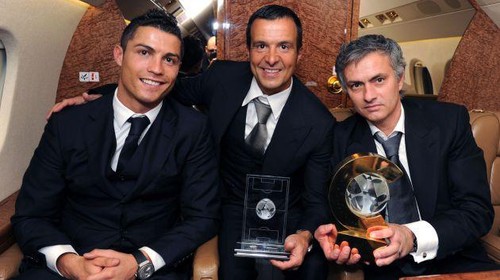
Before commercialization came to football, money involved in the industry was not as big as we know now. The astronomical value of football industry was the result of broadcasting revolution. Broadcasting revolution made it possible for a football match to be seen by people from all around the world, with billion eyes watching them playing revenue from broadcasting activity significantly increases clubs income.
The big income made it possible for clubs to buy players at high prices and give them high salaries. Salary of a star footballer is now equal with salary of a top actor or a CEO of large company.
With big money involved, agents are needed by footballers so that they are not fooled. The rise of agents role in football even forced FIFA to regulate them with FIFA Players Agent Regulations in 2008 and replaced with Regulations on Working with Intermediaries in 2015.
In its 2008 rules FIFA called those intermediary people as agents. However, there were many unlicensed agents that made transactions on transfers and player contracts were not transparent, made FIFA changed the term "agent" to "intermediary".
FIFA explains the intermediary as natural person (like family) or legal (representative), who with or without payment, represents the player and / or teams during negotiations with the view to complete the player's contract, or represent the team during negotiations with the view to finalize the agreement transfer.
But for the sake of simplicity I'll just call them agents in this article.
Role of Agents
In every transfer of a player there are at least three deals that should be made: between club (buyer) and player about salary and other clauses, between club (buyer) and agent about agent fee, and between clubs (buyer and seller) about transfer fee. In some cases agent fee is a fixed percentage of transfer fee.
In general, agents exist to take care of any businesses off the field. If a player wants higher salary, longer contract, and demand certain clauses, then it's agent's job to make it happen. Agents are on duty anytime footballers want to renegotiate contracts or move to other club.
As footballer's representative, agent is responsible to secure best deal for his client, above his own personal interest. Best deal is not always about the highest salary, but also about the development of the footballer. For example, Kylian Mbappe's father chose small club for his son so he could get higher chance to play in the main team which is important for a young player to develop his skills and experience.
But most of footballers just want their agents to maximize their potential income, on and off the pitch, since footballers career is short. There are many deal opportunities for footballers besides their salary from club, such as advertising, image rights, and other contracts. Footballers face trade off and just can't accept all of them, agent's role is to sort and decide which contracts that could benefit his clients most. Many agents also have connection with clubs, brands and sponsors so they can bring new opportunities to footballers.
In fact, agent's role can be much deeper in a footballer's life. Agents often deal with footballers personal issues and daily support. No wonder that many footballers choose their friend or family member as their agent because they are already close to them.
Comments